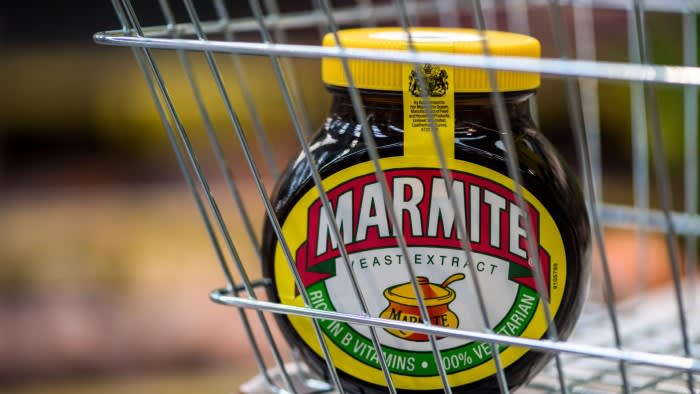Unlock the Editor’s Digest for free
Roula Khalaf, Editor of the FT, selects her favourite stories in this weekly newsletter.
Unilever’s chief executive said he was disappointed by the company’s performance after the consumer goods group reported a further erosion of its market share even as it hailed a return to positive sales volumes.
The maker of Magnum ice cream and Dove soap said underlying sales rose 7 per cent in the 12 months to December, in line with analysts’ expectations, while revenue fell 0.8 per cent to €59.6bn.
The percentage of the business that won market share dropped to 37 per cent, down from 38 per cent in the previous quarter and from 48 per cent in the first quarter of the year as consumers traded down to private-label products, particularly in Europe.
But the company sold more of its goods after a decline in volumes in 2022, as slowing price rises encouraged customers to buy more. Sales volumes increased 0.2 per cent for the full year, driven by strong growth in Unilever’s prestige beauty and health and wellness divisions, and 1.8 per cent in the fourth quarter, while prices were raised by 6.8 per cent. Shares were up almost 3 per cent in morning trading.
“Today’s results show an improving financial performance, with the return to volume growth and margins rebuilding,” said Hein Schumacher, who took over from chief executive Alan Jope last year. “However, our competitiveness remains disappointing and overall performance needs to improve.”
He added that inflation would return to normal levels this year — between 2.5 and 3 per cent — with some pockets of deflation in regions like south and south east Asia but that “we wouldn’t see negative pricing necessarily”.
The group’s profitability inched up in 2023, to an underlying operating margin of 16.7 per cent compared with the previous year’s 16.1 per cent. Underlying operating profit rose 2.6 per cent to €9.9bn.
Many consumer goods companies have fought to maintain their margins during a period of high inflation and ensuing reduced consumer demand.
Companies raised prices to offset higher costs, but the exercise has revealed the limits of their brand pricing power, as consumers started to push back against ever more expensive groceries and trade down to private label and cheaper goods.
Schumacher has set out to overhaul Unilever’s performance, drive growth and focus on the company’s 30 strongest brands, with the backing of activist investor and board member Nelson Peltz, who started building a stake in the group after its botched attempt to buy GSK’s consumer health division.
“We are at the early stages of this work and there is much to do but we are moving with speed and urgency to transform Unilever into a consistently higher-performing business,” Schumacher said on Thursday.
At Unilever’s last trading update, the company announced a leadership reshuffle with the appointment of a new chief financial officer, Fernando Fernandez, and new division chiefs in the beauty and wellbeing, ice cream and home care groups.
However, Schumacher has faced mounting challenges, including an investigation by the UK competition watchdog over Unilever’s green claims, tensions with its ice-cream brand Ben & Jerry’s over its political stance on the Israel-Hamas conflict, and scrutiny over its continued operations in Russia.
On Thursday Unilever said it had reviewed its position in Russia and concluded, “the containment actions we put in place at the beginning of the war minimise our economic contribution to the Russian state”.
As of the end of last year, the company had net assets of about €600mn, including four factories, in the country.
